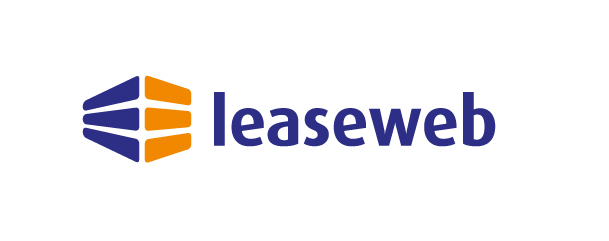Not All Clouds are Created Equal
Marcus Busch, Managing Director of Leaseweb Germany, outlines five less obvious factors to choosing the right cloud and hosting provider.

© ipopba | istockphoto.com
In order to provide digital services efficiently, many organizations outsource large parts of their IT infrastructure to appropriate cloud and hosting service providers. When comparing different providers, at first glance they all offer a good price/performance ratio. Nevertheless, numerous dissatisfied cloud customers prove time and again that costs should not be the most important selection criteria.
But how do you separate the wheat from the chaff in the search for a suitable provider? A frequent challenge for many customers is to correctly assess what their company actually needs. The technological requirements are as diverse as the ways to meet them. In most instances, it only later becomes clear which factors should have been better considered, and which were overestimated. It can therefore be helpful for companies to include not only the obvious considerations in their selection process, but also the less prominent ones.
1. Sector-specific experience please!
Providers that have been successful for many years can usually prove their experience via the references of a number of their well-known customers. However, more important for potential customers is the experience with comparable companies in their industry. This increases the probability that a provider already has the right solutions for specific technical challenges. But customers should not be satisfied just with the simple statement that the provider in question can meet the respective industry-specific requirements.
2. Cloud SLAs are important, but so is network performance!
Finding the right cloud infrastructure for specific requirements requires good design. If the basic architecture is sound, vendors guarantee the performance of the infrastructure through service level agreements (SLAs). These form the basis for the guaranteed performance and reliability of the hosting provider - and are an important part of the process for selecting a hosting provider. SLAs are simple metrics and can be used to compare different providers. However, with regard to the performance areas documented in the SLAs, the functionality of both the cloud or server options, as well as network performance, should be considered. Because the promised performance will only reach the company if the network performance is adequate.
3. Location, location, location!
The cloud is no longer the unknown, vague ‘somewhere’ to which you move your data. The actual, physical location of servers and the associated applicable jurisdiction is of utmost importance for companies in regulated industries. It is strongly recommended to check if the jurisdiction applicable at the location is also the only applicable jurisdiction. It may be different due to the location of the hosting provider's headquarters.
Another factor that comes into play further along in the process is business development: the more a company expands its international presence, the more important it becomes that it can operate across borders and provide a seamless service. A remote data center location implies high latency. So, a partner that was once ideal for a company's local region may no longer be the right option as international expansion progresses. It is therefore advisable to think ahead and include anticipated growth and development in the decision forecast for or against a provider.
4. Safety first!
The number of IT threats is constantly growing, and moving parts of its infrastructure into the cloud has the potential to further increase an organization's exposure to threats. To reliably secure a hybrid infrastructure, it is therefore important to have a hosting partner who can demonstrate a high level of security. To make an accurate assessment, companies should ask for the security level and relevant certificates.
5. Size is not everything!
Faced with a multitude of comparable offers, companies often concentrate only on the most popular providers - for the sake of simplicity. These providers are commonly very large and are by nature less flexible to react to the special requirements and individual wishes of potential customers. In comparison, smaller providers with a broad product portfolio are more able to respond to specific requirements. Hence, it is not advisable to rely solely on the brand image or size of a provider.
6. Service design and accessibility
In most cases, the deciding factor for a change of provider is poor service. Although 24/7/365 availability is standard, there are differences in the way it is designed. Good service starts with a provider understanding its customers and their goals. This can be seen, for example, in the ability to quickly “on board” the new customer. Other indicators are the processing of service tickets and the resources made available for complex problems. In an ideal world, one contact person is assigned to the customer, which increases the probability that the hosting partner will quickly find an effective solution if a company has to adapt to new circumstances, needs help, or suddenly encounters technical difficulties. The best way to find out how good a provider's service is in day-to-day cooperation is to look at current reference customers. While undertaking the selection process, a sensible approach can be to consult with other customers within the same industry. Ideally, the future partner proactively arranges the contact.
Not all clouds are the same
There are many factors to consider when choosing a cloud or hosting provider and, ultimately, companies need to be clear about their own requirements. Before migrating to the cloud or switching to a different provider, companies should therefore not only consider the seemingly typical selection factors, but also intensively consider the less considered ones. This way, many pitfalls which can later lead to problems with the selected cloud provider can be avoided. Ideally, you will find a flexible partner who can support your growth strategically in the long term.
Marcus Busch is the Managing Director of Leaseweb Deutschland GmbH, based in Frankfurt/Main. The MBA holder has been active in the IT and telecommunications market for over 25 years. Since starting his career at Thyssen Telecom AG in Düsseldorf, Marcus has gained expertise in networks and cloud technologies by occupying leading positions in several organizations, including Verizon Enterprise Solutions, Media Broadcast GmbH, and Deutsche Telekom AG/T-Systems.
Please note: The opinions expressed in Industry Insights published by dotmagazine are the author’s own and do not reflect the view of the publisher, eco – Association of the Internet Industry.




